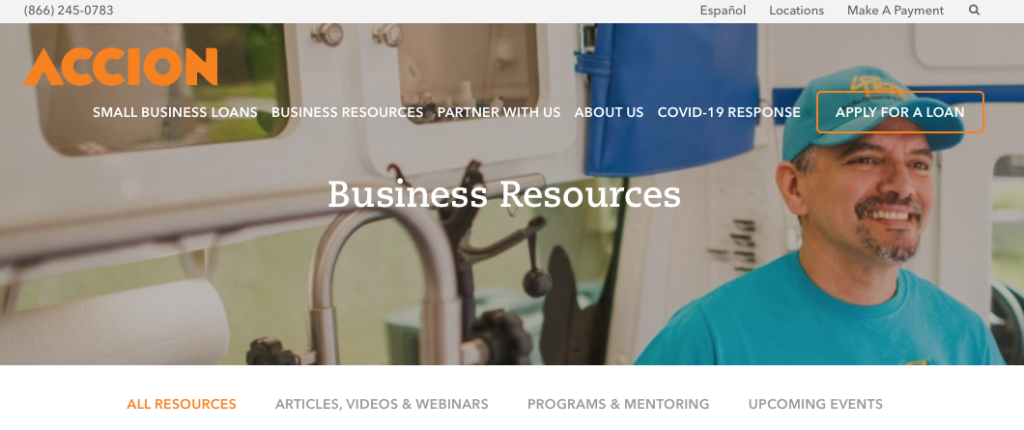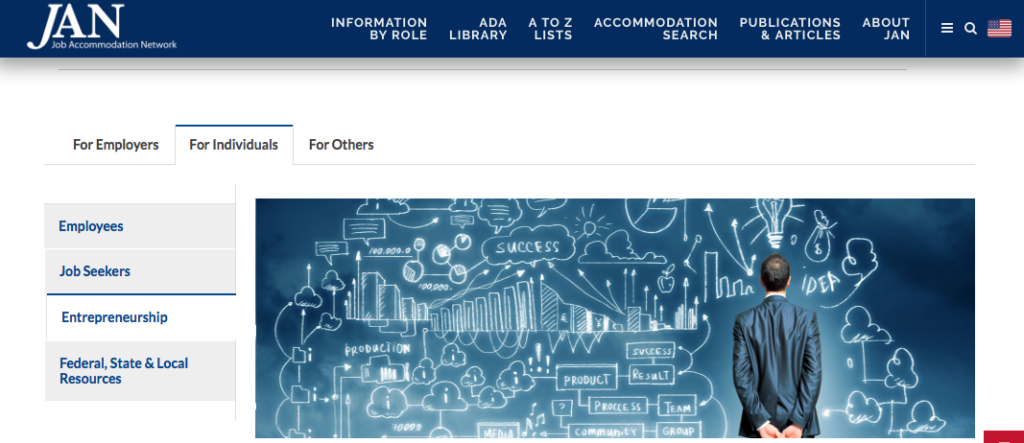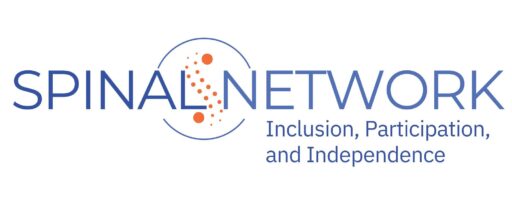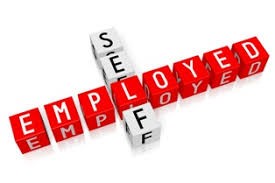Self-employment is a solution for the person who wants to be self sufficient, productive and to be able to contribute to the economy but have challenges within the confines of a workplace setting. Issues such as transportation, dependence on caregivers and limiting conditions associated with the disability and perseverance of one’s own health are all qualifiers for choosing to work for yourself and have control over your abilities.
Self-employment is definitely worth exploration and you will find amplitude of great resources for people with disabilities to determine if this type of business organization is for you.
In addition to a productive lifestyle, the pride and fulfillment of owning and operating your own business, you may benefit from self-employment status in controlling your income level and maintaining needed benefits through business expense deductions for disability related work needs that may keep your income low enough for eligibility.
In addition, incentives for working while disabled may offer you some benefits that losing would not be worth being self-employed. One such program that has benefitted me by supplying health coverage for people with disabilities who get jobs is the IHSS Working Disabled 250% program.[1] Because I require a caregiver, I have been able to pay a monthly premium so that I can still earn money above the eligibility cut-off amount. This premium allows me to be Medi-Cal eligible without a huge share of cost to defray my caregiver and medical expenses.
Self-employment can be a realistic goal for people with disabilities. That being said, self-employment is not for everyone – disabled or not. Being your own boss and working at your pace and when you want to have appeal. That is if you are self-motivated and self-directional and disciplined!
Are you willing to make a business plan to outline how much profit you’ll need to keep your business afloat and cover your personal needs? Monitoring your expenses is vital for success. Keeping abreast of your industry and business conditions is just as important for the stay at home entrepreneur as it is for a multi-level corporation. Are you willing to learn how to be a successful entrepreneur?
Are you disciplined enough to stay on track to complete your projects as well as handle all the business administrative support that would be provided if you had a business organization behind you to support sales, billing, compliance with government and industry regulations such as taxes or licensing?
Fortunately, with today’s technology there a lot of apps that streamline and make these tasks easier for you. As well, there is an online gig economy where you can find low cost hires around the world to handle your business affairs.
Having a plan before venturing out on your own is important. Not only are you your own boss, you are your own administrative support; and head of marketing, bookkeeping, sales and Human Resources.
To succeed, you must do the following exercises to determine if your business will be feasible. In other words, how much money will your business need to make?
- What do you need to support yourself – i.e., your living expenses – food, rent, utilities, insurances, auto expense, cell phone, Netflix …… . Add up your living expenses.
- Would you be better off working for someone else or can you make it on your own? Let’s say your living expenses are $4,000/month or $48,000/year. If you work on average 40 hours a week on your business (with 2 weeks of holiday/sick time), then at a base minimum, your target hourly rate will be: $48,000 (40 hours x 50 weeks) = $24.00/hour
- Note – you’ll have costs of the business and your pricing strategy to determine what you will really need to make. This is just a rough estimate of what time commitment and profit you’ll need to survive.
- How much capital do you need to start your business? – I.e., equipment purchase or rental, supplies, labor, services, leases, licenses, taxes, etc…
- How much profit will you need to earn to grow your business, plan for contingencies and support the extras you desire in your own personal life. To calculate profit, you need to determine your expected business expenses and project your expected income.
- INCOME – EXPENSES = PROFIT/LOSS
- Is your business feasible?
- Will your profit cover your personal and business expenses, your capital costs, and as well costs to grow your business and cover unexpected contingencies?
By doing this business planning, you’ll get a feel of what will work and where you need to look at other options for efficiency or cost control. You’ll also be able to analyze where you can make changes in your plan to be successful such as controlling costs, creating efficiencies and developing competitive pricing strategies.
Lastly, and very importantly, you need to be honest with yourself to determine the amount of time, energy, skills and resources (i.e., cash) you can commit to your business goal. You also need to look deep into yourself and your purpose to be successful. Are you self-directional and self-motivated? Are you your good boss? Will you get things done?
What are your resources? Resources are more than cash. They include other means to support your business. Perhaps free rent or a family member that will work with little or no compensation when your funds are low?
Resources also include organizations that can help you get your business off the ground. Surviving as a self-employed individual is dependent on the “you eat what you kill” concept. Learning to be self-employed has a steep learning curve. Fortunately, you can find lots of resources to help walk you through the whole maze of developing your business – often free or low-cost.
Most communities have a Small Business Development organization. Here, in San Diego, Accion[2] is an excellent one offering education to prepare you, business development counseling, mentoring and even access to funding. Similar to entrepreneurial Training Programs offered in communities all across the country, take a look at the low cost $49 Refundable upon completion 10-week training program[3] offered by Accion. Research online and on YouTube for other instructional trainings.

In addition, you will find governmental programs offering a cushion of support as an incentive to get people with disabilities into the workplace. Disability Benefits 101 is a great resource as a website with tools and information on employment, health coverage, and benefits. Further discussions of the resources I’ve mentioned in this article are included on this site.

- Social Security has a PASS (Plan to Achieve Self Support)[4] and a Ticket to Work[5] program that offer assistance in training, access to equipment needed and financing as well as retention of benefits so you’ll have a cushion for your housing, food and medical needs while you transition into self-employment.
- Your state has a Vocational Rehabilitation Program that will assist you in job retraining and/or readiness. Along with counseling, advice on resources and grants for education and equipment costs are provided.
- Often grants and other types of assistance are available to special groups such as Veterans or disability specific organizations or through your community. Research or talk to a counselor about your options
Understanding the income limitations of any benefits you receive is an important consideration. Many people with benefits choose not to work out of fear that they will lose their benefits. You can utilize the Disability 101 Benefits and Work Calculator[6] to see how your benefits may be affected. Fortunately, special considerations are often made to encourage employment. Often, transition steps are implemented so benefits are available even while working.
Here are a few other resourceful web sites that are useful to review if your re interested in pursuing self-employment.
The Office of Disability Employment Policy (ODEP)[7] is the only non-regulatory federal agency that promotes policies and coordinates with employers and all levels of government to increase workplace success for people with disabilities.

The Job Accommodation Network (JAN),[8] an ODEP-supported service, provides individualized technical assistance, consulting, and mentoring services to individuals with disabilities, family members, and service providers. JAN consultants handle each inquiry on a case-by-case basis offering self-employment and small business development expertise and referrals regarding business planning, financing strategies, marketing research, disability-specific programs, income supports and benefits planning, e-commerce, independent contracting, home-based business options, and small business initiatives for disabled veterans. JAN customers can expect to receive a resource packet tailored to their specific entrepreneurial goals with consultants available throughout all stages of the process who can provide ongoing supports.

[1] IHSS Working Disabled 250% program. (https://ca.db101.org/ca/situations/youthanddisability/benefitsforyoungpeople/program2f.htm)
[2] Accion Nonprofit (https://us.accion.org/about-us/our-approach/)
[3] Accion Training Program (https://us.accion.org/resource/accion-academy-for-entrepreneurial-success/)
[4] PASS (Plan to Achieve Self Support (https://ca.db101.org/ca/programs/job_planning/pass/program.htm)
[5] Ticket to Work (https://ca.db101.org/ca/programs/work_benefits/ttw/program.htm)
[6] Disability 101 Benefits and Work Calculator (https://ca.db101.org/planning/(S(qrlfwcum5txht5v5igjqskky))/b2w2_start.aspx?screen=start&l=b2w2)
[7] The Office of Disability Employment Policy (ODEP) (https://www.dol.gov/odep/topics/SelfEmploymentEntrepreneurship.htm)
[8] JAN (https://askjan.org/info-by-role.cfm#for-individuals:entrepreneurship)
Look for Part 2 “Choosing Self Employment” by Tami Ridley in our June Newsletter

